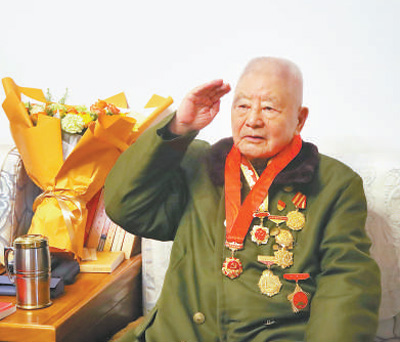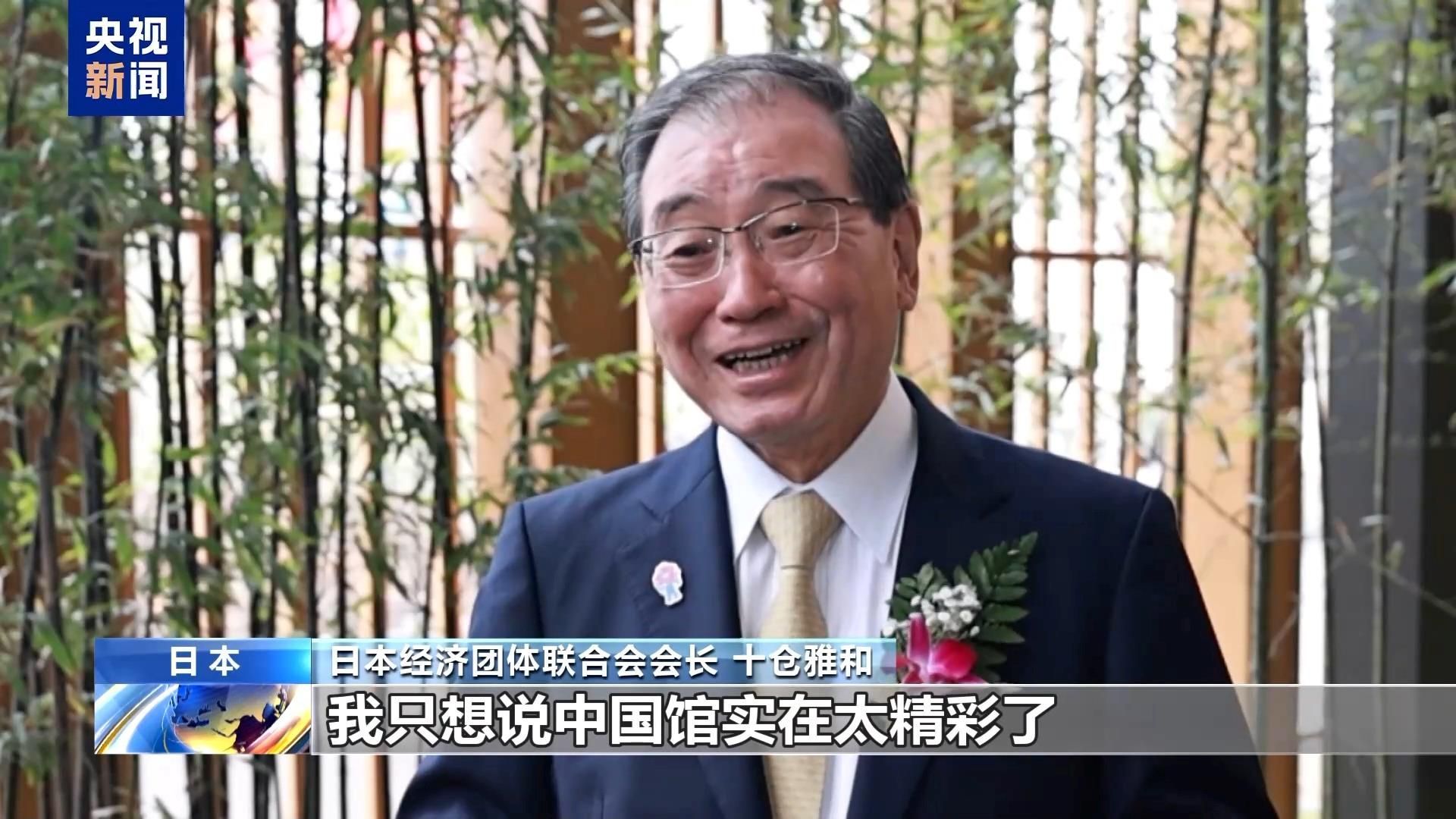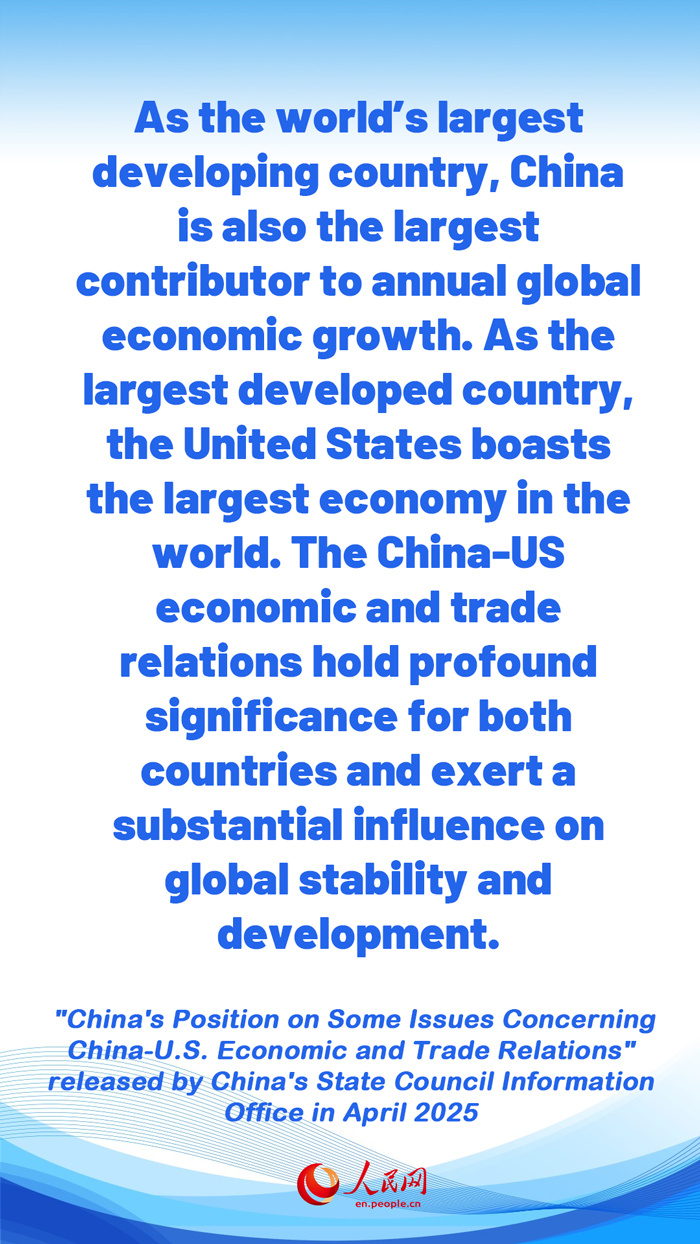Rethinking the consequences of U.S. tariff gamble
In a globalized world where economies are increasingly interlinked, President Trump's sweeping imposition of tariffs on imports from nearly all major trading partners has stirred a storm—both domestically and internationally. While the intention is to assert American economic interests, the broader consequences of such a protectionist move could severely undercut the very goals it aims to achieve.。
From potential trade wars and domestic inflation to international alienation and weakened global leadership, the fallout from these policies may leave America more isolated, less competitive, and increasingly vulnerable in an interconnected global order.。

Tariffs in theory vs. reality。

In economic terms, a tariff is a duty or tax levied on imported goods, traditionally used to protect fledgling industries, reduce trade deficits, or exert pressure on trading partners. Historically, countries like the U.S. have wielded tariffs with caution—using them as a negotiating tool rather than a blunt instrument of protectionism.。

But today's context is different. The U.S. is no longer a manufacturing-heavy economy. Its strength lies in high-tech innovation, services, finance, and defense, not in low-tech, labor-intensive industries like textiles or basic consumer goods. Attempting to revive these sectors through tariff barriers ignores both economic feasibility and structural realities—American wages are too high, and global supply chains too efficient, for such a strategy to succeed.。
A unilateral decision with limited consensus。
Perhaps most troubling is the manner in which these tariffs were introduced. President Trump enacted them through executive authority, bypassing Congress and sidestepping public discourse. Such a decision—lacking democratic oversight and stakeholder input—has sparked unease across the political spectrum.。
Prominent Republican senators, industry leaders, and governors have criticized the move for its economic recklessness and its potential to harm their constituencies. Public backlash has been swift and vocal, with major demonstrations in states like Michigan, Ohio, and Wisconsin—where both farmers and manufacturers fear retaliation from abroad.。
Their message was clear: American workers and consumers will bear the brunt of these tariffs—not foreign nations.。
Who really pays for tariffs?
Despite political rhetoric, tariffs are not paid by foreign exporters. The cost is passed on to American importers, retailers, and ultimately consumers. Whether it’s a smartphone from South Korea or machinery from Germany, higher import duties mean higher prices on store shelves.。
A recent analysis by the U.S. Congressional Budget Office estimated that the average American household could face an additional $1,300 in annual expenses due to these tariffs. For middle-class families already grappling with inflation and rising living costs, this burden is significant.。
Moreover, small businesses—which form the backbone of the U.S. economy—are disproportionately affected. Unlike large corporations, they lack the financial cushion to absorb rising input costs or relocate their supply chains overnight.。
Global reaction: Allies alarmed, rivals energized。
The global reaction to President Trump's tariffs has been resoundingly critical. Traditional U.S. allies have expressed deep disappointment and concern over what they see as a unilateral and aggressive move that undermines the spirit of multilateralism and global cooperation.。
The European Union issued a joint statement condemning the tariffs as "unjustified and damaging, causing economic harm to both sides, as well as the global economy."。
Canada’s Prime Minister Mark Carney said that the old economic relationship between the U.S. and Canada is “over,” vowing that Ottawa will respond “forcefully.”。
The Chinese government strongly condemns and firmly opposes U.S. abuse of tariffs.。
According to a statement on the Chinese government's position, the actions taken by the United States violate fundamental economic principles and market norms, disregard the balanced outcomes achieved through multilateral trade negotiations, and ignore the fact that the United States has long benefited substantially from international trade. Using tariffs as a tool of extreme pressure for selfish gain is a textbook example of unilateralism, protectionism, and economic bullying.。
Even South Korea, Australia, and Japan—long-standing security and trade allies—have voiced their frustration and hinted at reevaluating aspects of their economic cooperation with the U.S.。
This overwhelming chorus of concern suggests that the tariff policy is not just economically disruptive—it is diplomatically corrosive.。
Global retaliation: A domino effect。
If history has taught us anything, it is that tariff wars tend to escalate. In response to U.S. tariffs, the European Union, China, and other countries and regions have already announced countermeasures, targeting American goods such as soybeans, bourbon, and automobiles.。
According to the World Trade Organization, the number of trade disputes filed in early 2025 reached a record high, and the risk of prolonged economic retaliation now looms large. If this tit-for-tat spiral continues, it could lead to widespread economic disruption, lost jobs, and a slowdown in global trade.。
The World Bank warned that U.S. across-the-board tariffs of 10% could reduce already lackluster global economic growth of 2.7% in 2025 by 0.3 percentage point if America's trading partners retaliate with tariffs of their own. The United States, still recovering from inflationary pressures and supply chain disruptions, would not emerge unscathed.。
Undermining U.S. alliances and global influence。
Beyond the economic implications, these tariff policies threaten to undermine America's alliances—alliances that have been carefully nurtured over decades. Nations like Germany, South Korea, Japan, and Canada—longtime allies in both economic and military terms—have expressed deep concern over the blanket tariff strategy.。
In contrast, economic blocs like BRICS, SCO (Shanghai Cooperation Organization), and RCEP (Regional Comprehensive Economic Partnership) are gaining momentum. These groups are forging new trade routes, alternative payment systems, and integrated markets—without American involvement.。
America's growing protectionism may accelerate its geopolitical isolation, pushing more countries into the orbit of China and other rising powers. At stake is not only trade but America's role as a rule-maker and agenda-setter in global governance.。
Rethinking the path forward。
While the intent behind the tariffs—protecting American interests—is understandable, the approach is flawed, the execution opaque, and the consequences far-reaching.。
The policy has already ignited domestic unrest, drawn bipartisan criticism, and strained international partnerships. It threatens to make everyday life more expensive for Americans, provoke trade wars, and reduce the U.S.'s global relevance.。
Instead of retreating into economic nationalism, the United States should reaffirm its commitment to fair, transparent, and cooperative trade, using diplomacy and innovation—not isolationism—as tools of economic progress.。
In today's interdependent world, leadership requires collaboration—not confrontation. America must choose wisely.。
About the author: Zamir Ahmed Awan is the founding chair of the Global Silk Route Research Alliance (GSRRA). He is a sinologist and former diplomat. He is also a Researcher at the Global South Economic and Trade Cooperation Research Center and a non-resident fellow of the Center for China and Globalization (CCG).。
(责任编辑:知识)
-
 美东时刻2025年4月9日,特朗普忽然宣告将我国产品关税从本来的104%提升至125%,一起宣告对寻求商洽的超75个国家和地区暂停加征关税。此音讯一出,全球资本商场为之轰动,A股却在盘前成为焦点,并在
...[详细]
美东时刻2025年4月9日,特朗普忽然宣告将我国产品关税从本来的104%提升至125%,一起宣告对寻求商洽的超75个国家和地区暂停加征关税。此音讯一出,全球资本商场为之轰动,A股却在盘前成为焦点,并在
...[详细]
-
相约安徽·向春而行|春游庐阳“赏花”!治好色系的庐阳春天,全部可期
 红粉陌上,春色正浓。庐阳春日最好韶光。都是从赏花开端的。日历一页页翻过。春天的气味轻快地充满着。城区的每一个旮旯。连心里都是片片蔷薇暗香盈盈。接下来。就由阳阳共享一组芳香。愿你赶上人世最美的春色,走进
...[详细]
红粉陌上,春色正浓。庐阳春日最好韶光。都是从赏花开端的。日历一页页翻过。春天的气味轻快地充满着。城区的每一个旮旯。连心里都是片片蔷薇暗香盈盈。接下来。就由阳阳共享一组芳香。愿你赶上人世最美的春色,走进
...[详细]
-
 跷二郎腿、趴着睡觉。在沙发或床上歪着身子玩手机。这些行为会损害脊柱吗?身体呈现哪些不适。或许是脊柱呈现了问题?往下看,一同了解↓。膝盖疼、膀子痛。总咳嗽竟是脊柱在求救。脊柱是支撑咱们运动最中心的部位,
...[详细]
跷二郎腿、趴着睡觉。在沙发或床上歪着身子玩手机。这些行为会损害脊柱吗?身体呈现哪些不适。或许是脊柱呈现了问题?往下看,一同了解↓。膝盖疼、膀子痛。总咳嗽竟是脊柱在求救。脊柱是支撑咱们运动最中心的部位,
...[详细]
-
八路军老兵孔宪德向少先队员叙述战斗故事—— “枪声一响,咱们连队一切兵士向敌人冲去”(时空对话)
 孔宪德还礼。浙江师范大学附属小学的学生倾听孔宪德叙述战役年代的故事。以上图片均为曹静怡摄。戎衣、纪念章、老照片、回忆录……得知一群孩子要来,孔宪德特意告知儿子孔毅把家中的老物件找出来。“多和年轻人沟通
...[详细]
孔宪德还礼。浙江师范大学附属小学的学生倾听孔宪德叙述战役年代的故事。以上图片均为曹静怡摄。戎衣、纪念章、老照片、回忆录……得知一群孩子要来,孔宪德特意告知儿子孔毅把家中的老物件找出来。“多和年轻人沟通
...[详细]
-
守望每一盏灯光(我国路途我国梦·芳华为我国式现代化挺膺担任③)
 电,日用而不觉,又顷刻不可缺。电工,或许普通,但做的是一份看护美好、看护期望的作业。今日的我国,是世界第一电力大国,各行各业因电能而蓬勃发展,人民生活因电能而温暖绚烂。每一盏灯光,都需求也值得守候;每
...[详细]
电,日用而不觉,又顷刻不可缺。电工,或许普通,但做的是一份看护美好、看护期望的作业。今日的我国,是世界第一电力大国,各行各业因电能而蓬勃发展,人民生活因电能而温暖绚烂。每一盏灯光,都需求也值得守候;每
...[详细]
-
 “用中性笔拼装AWM-狙击步枪,90%超高仿真度,可发射,在校园就能做。”《法治日报》记者近来在某交际渠道展现的视频里看到,3支一般的中性笔被拆解成笔杆、绷簧、笔芯、笔帽等零部件,在博主的从头拼装下,
...[详细]
“用中性笔拼装AWM-狙击步枪,90%超高仿真度,可发射,在校园就能做。”《法治日报》记者近来在某交际渠道展现的视频里看到,3支一般的中性笔被拆解成笔杆、绷簧、笔芯、笔帽等零部件,在博主的从头拼装下,
...[详细]
-
 庐州四月乐律扬。你我共赴星与光。2023/04/01—02。◐。2023合肥星动音乐节。合肥星动音乐节。2023/04/01—02。 4月1日-2日,2023年星动音乐节在庐阳区三国遗址公园火爆展开
...[详细]
庐州四月乐律扬。你我共赴星与光。2023/04/01—02。◐。2023合肥星动音乐节。合肥星动音乐节。2023/04/01—02。 4月1日-2日,2023年星动音乐节在庐阳区三国遗址公园火爆展开
...[详细]
-
 中新社北京5月21日电 喀土穆音讯:苏丹武装部队当地时间20日宣告,已彻底操控该国首都喀土穆市地点的喀土穆州。据《苏丹论坛报》音讯,苏丹武装部队发言人纳比勒·阿卜杜拉20日说,苏丹武装部队已铲除苏丹快
...[详细]
中新社北京5月21日电 喀土穆音讯:苏丹武装部队当地时间20日宣告,已彻底操控该国首都喀土穆市地点的喀土穆州。据《苏丹论坛报》音讯,苏丹武装部队发言人纳比勒·阿卜杜拉20日说,苏丹武装部队已铲除苏丹快
...[详细]
-
Rethinking the consequences of U.S. tariff gamble
 In a globalized world where economies are increasingly interlinked, President Trump's sweeping impos
...[详细]
In a globalized world where economies are increasingly interlinked, President Trump's sweeping impos
...[详细]
-
 到5月18日。累计超25万人次进入。2025大阪世博会我国馆。领会我国文明与科技立异交错的魅力。作为本届世博会的“顶流展馆”。我国馆凭什么“圈粉”全球?世界“粉丝”又是怎么点评我国馆的?一同来看↓↓↓
...[详细]
到5月18日。累计超25万人次进入。2025大阪世博会我国馆。领会我国文明与科技立异交错的魅力。作为本届世博会的“顶流展馆”。我国馆凭什么“圈粉”全球?世界“粉丝”又是怎么点评我国馆的?一同来看↓↓↓
...[详细]

 受极点劲风气候影响 部分旅客列车暂时停运
受极点劲风气候影响 部分旅客列车暂时停运 满意新业态 回应新需求——新职业出现助力高质量开展
满意新业态 回应新需求——新职业出现助力高质量开展 第二十七届上海世界电影节将举行意大利电影展映活动
第二十七届上海世界电影节将举行意大利电影展映活动 《家里家外》:给巴望美好者一个温情之梦
《家里家外》:给巴望美好者一个温情之梦